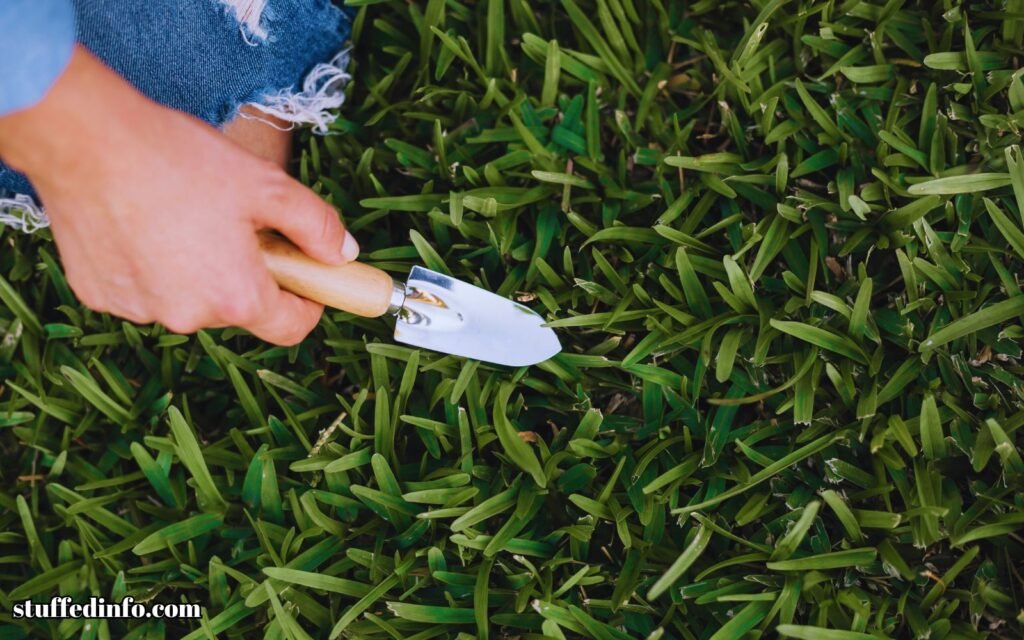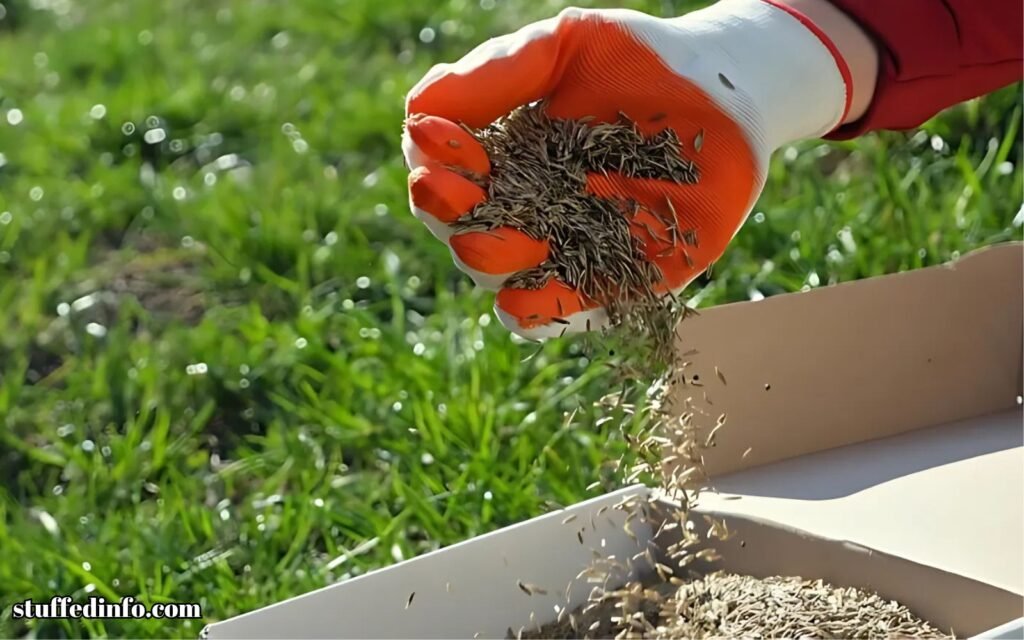If you want a beautiful green lawn that handles hot and dry weather, you should go for Bermuda grass. This grass grows great during warm climatic times and can survive heavy use as well. A great way to get started with Bermuda grass is to start by planting it directly from the seed. Through this blog post, we will provide you with the necessary information regarding how to grow Bermuda grass from seed. Moreover, you will learn about what you should consider, preparation methods, and some maintenance tips.
Table of Contents
ToggleWhat Should We Consider While Growing Bermuda Grass Seed?
Growing Bermuda seed depends on the weather, soil, and how you plan to use your lawn. But you should consider the steps in this section to grow this grass.
- Location – Bermuda grass grows in a great way if you place it in sunny spots. It further needs at least 6 hours of sunlight every day to keep it healthy and grow, such as sports fields or lawns.
- Temperature – The grass loves warm weather and does the best between 75° Fahrenheit to 95° Fahrenheit. Moreover, it doesn’t survive well in cold temperatures as it turns brown and goes dormant as soon as temperatures drop below 50° Fahrenheit.
- Weather – Bermuda Grass likes dry and hot weather as it doesn’t do well with a lot of water or humidity which further makes this plant perfect for areas that have mild winters and long summer seasons.
- Soil — Bermuda grass grows best in well-draining soil, such as loamy and sandy soil. Also, you should grow it in soil that is slightly acidic to neutral pH level but doesn’t like heavy or wet clay soil.
Picking the right Bermuda grass lawn seed is about matching it to your local conditions. The right care will thrive and give you a green and lasting lawn.
How To Grow Bermuda Grass From Seed?
With proper steps and care, you can have a thick green lawn that is perfect for warm weather and easy to maintain.

- Prepare The Soil: Cut down any tall grass or weeds and remove sticks, rocks, and other debris. Use a rake or garden tool to loosen the soil so the seeds can grow better.
- Plant The Seeds: Evenly spread Bermuda seeds over the soil using a broadcast spreader. You should apply 1 to 2 pounds of seeds for every 1,000 square feet for good coverage and growth.
- Rake Again: After spreading your grass seeds, you should lightly rake the soil and cover the seeds using a thin soil layer. Hence, this helps protect them from wind & birds and improves germination.
- Water The Seeds: Water the areas gently to keep the soil moist, but not soaked. Water every day or as needed until the grass begins to grow and establish roots.
By following these simple steps and being patient, your Bermuda grass will grow strong and healthy. With regular care, you will enjoy a beautiful green lawn for years to come.
Caring And Maintenance Tips For Bermuda Grass Lawn Seed
Taking care of your Bermuda grass from seed is simple. Regular water, mowing, and feeding will help your grass be strong and healthy, giving you a beautiful green lawn throughout the year.

- Winter Cleaning – Before the cold weather arrives, remove fallen leaves, twigs, and other debris to keep your lawn clean and healthy during the winter months.
- Dethatching – In early springs, remove thick layers of dead grass that may prevent water and nutrients from reaching the soil and grass roots.
- First Mowing And Irrigation – Mow your Bermuda grass for the first time in the spring season to encourage healthy growth and maintain a neat appearance. Ensure regular irrigation to prevent drying and promote continued healthy growth.
- Scheduled Mowing – Keep mowing your lawn consistently throughout the growing season to maintain its shape and encourage thick and lush grass growth.
- Aeration And Fertilizing – Aerate your Bermuda grass lawn by making small holes in the soil to help water, air, and nutrients reach the roots. Then, apply fertilizer regularly to give the grass the nutrients it needs to stay healthy and green.
- Weed And Pest Control – Check your Bermuda grass regularly for weeds and remove them to keep it healthy. Also, watch for pests like insects and take steps to control them. So, they do not harm or steal nutrients and water.
By following easy care tips, your Bermuda grass will stay healthy and grow well. With regular attention, you will have a thick and green lawn that looks great and lasts for years.
The Final Thoughts
If you want a tough and green lawn for hot climates, Bermuda grass is a great choice Start by preparing the soil and removing debris. Bermuda grass seed grows best in sunny areas with warm temperatures and well-draining soil. After planning, water regularly until the grass takes root. Keep the lawn healthy by mowing, watering, and fertilizing regularly. With proper care, your Bermuda grass will stay green and strong all year long.
FAQs
Question. When should we plant and grow Bermuda grass from seed?
Answer. The best fertilizers to grow Bermuda grass from seed is early summer or late spring.
Question. What are the best fertilizers to grow Bermuda grass from seed?
Answer. To grow Bermuda grass, use a fertilizer with equal or higher nitrogen (N) than phosphorus (P) and potassium (K). A balanced 3-1-2 or 4-1-2 mix works well for strong growth.
Question. How long does the seed of Bermuda grass take to completely grow?
Answer. Bermuda grass seed usually germinates in 7 to 14 days and takes 2 to 3 months to fully grow into a thick lawn.







